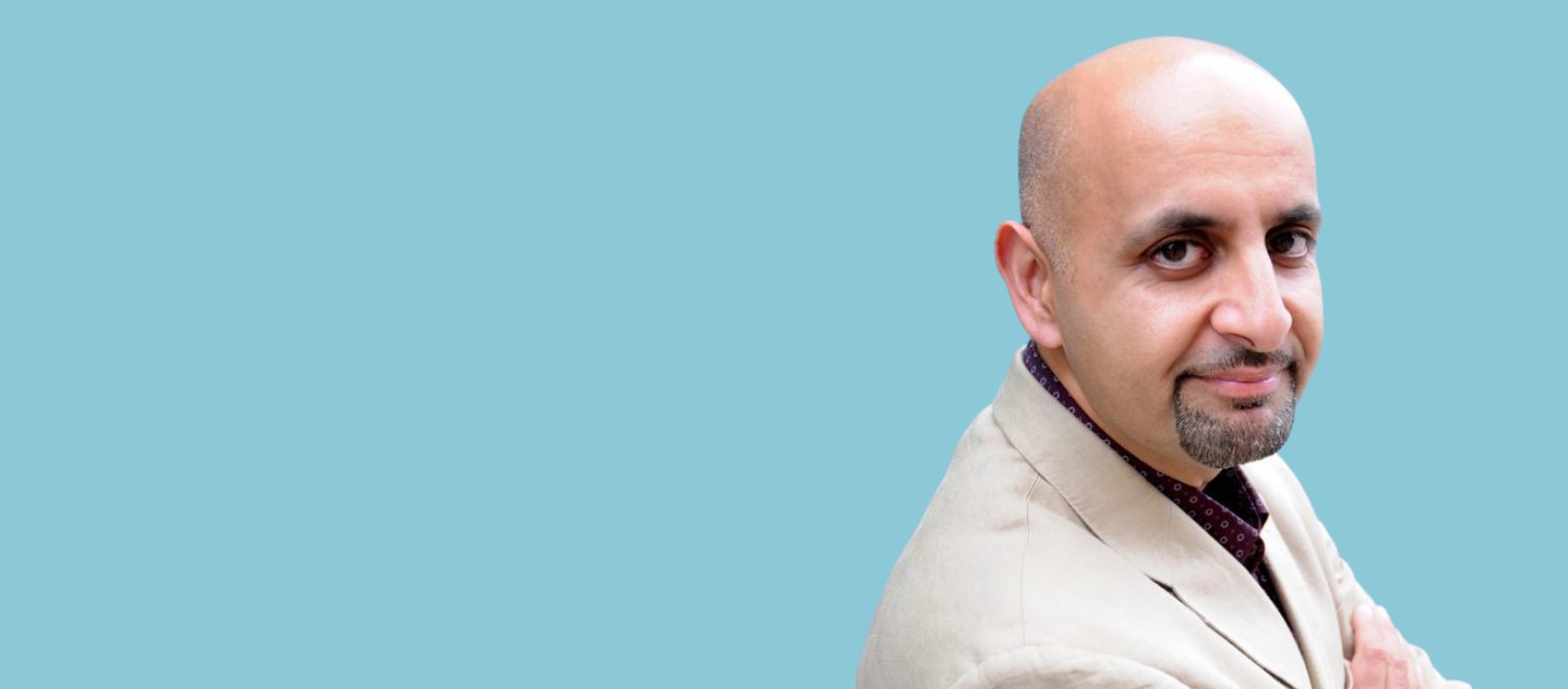
Aaqil Ahmed Q&A: Diversity in TV has gone forwards — and now backwards
Photograph courtesy of Aaqil Ahmed
The TV producer and former BBC and Channel 4 commissioner says broadcasters aren’t making enough challenging programming
–
Aaqil Ahmed was born into a working-class Pakistani family in Greater Manchester. His journey into TV started in 1986, when he dropped out of his sixth form studies and enrolled at art college, hoping for a career designing music album covers. It was there that he realised his true passion interests lay in film and TV, which he went on to study at the University of Westminster.
Ahmed entered the television industry just as multicultural programming was starting to make its mark on British broadcasting. He started work at the BBC’s multicultural unit in Birmingham, where he worked on programs including Bollywood or Bust and Panorama; and was the executive producer of the BBC’s first ever season on Islam. He left the BBC in 2003 to become commissioning editor for religion at Channel 4, then returned to the BBC in 2009 as its head of religion and ethics.
Since 2017, Ahmed has divided his time between running his own production company and consulting and teaching media at the University of Bolton.
This conversation has been edited for length and clarity.
How has TV about religion changed in the time you have been working?
Religion and ethics at the time I started working in TV were approached from a very Christian perspective, but that was beginning to shift and reflect on things that were happening in society. I was asked to be the executive producer of a big season on Islam. That all went out two weeks before 9/11 and it was almost as if we wasted our time.
How did those events affect what was being shown on TV?
There were a lot of books coming out after 9/11 and a lot of interest in faith, but that wasn’t necessarily reflected in what was being commissioned. When I moved to Channel 4, we wanted to put religion into prime time and made programs like God is Black, about the rise of African Christianity and its impact on liberal Anglicanism; ^ on the shared roots of Christianity, Judaism and Islam; and The Cult of the Suicide Bomber, where we tried to get into the minds of people who carried out these attacks. We wanted to make programs that were relevant, that were telling you about trying to explain the world we live in today through history, religion, and culture.
Do you think that broadcasting on matters of faith has changed in recent years?
Now, I don’t think there’s enough challenging, big, meaty stuff. But that’s not a criticism. Sometimes those ideas are hard to get and, then, you’ve got to do your job and get things played in a decent slot. I would say my vision was more about religious literacy. I know the people involved now and I have a lot of time for them. They know what they’re doing, it’s just a different vision to mine.
The topics you have covered have included really sensitive issues, from the halal meat trade to the Charlie Hebdo attacks. How do you approach telling those stories?
I made a program about the Qur’an and what I realised was we were all so scared about the potential impact of what we were saying that we were trying to get through it as quickly as possible. In actual fact, what we needed to do was the opposite. You spend more time on it, and you do it properly. By the end of it, people have heard multiple voices. Then, you should actually pause so that people have the time to understand and catch up with the point that you’ve been making, and then move on to the next point. My experience has been that if you don’t set out to offend in the process of exploring a complicated subject, and you do it properly, then people do not get offended.
What advice would you give your younger self?
One of the things is to probably be more careful about some of the decisions you make in terms of career structure. What I tell a lot of students and people who I mentor or ask me for advice, is: “Just be careful about what you want to do.” Start figuring out what you want to do. What do you want to achieve? What will success look like? What will success not look like? What are you going to do in three years, five years, seven years? Start to write that down. What are the things that you’ve got that will help you get that? What are the things that you haven’t got? How do you get them? How do you get over the blockers? These are boring exercises, but they help you to make the right decisions.
Has the broadcast industry’s vision of diversity changed since you started out?
There have definitely been improvements in gender, but I don’t think there’s been enough of an improvement in terms of disability — particularly off screen. When it comes to cultural diversity, I think we’ve gone forward and then backwards. We’re in a backwards period right now because of the gatekeepers — who may think of themselves as being liberal and anti-racist — but the fact of the matter is they are surrounding themselves with people like them. You should understand that real success is when you’re reflecting true diversity, by reflecting the areas you’re working in, rather than just an industry-created version of what diversity is.
Topics
Get the Hyphen weekly
Subscribe to Hyphen’s weekly round-up for insightful reportage, commentary and the latest arts and lifestyle coverage, from across the UK and Europe
